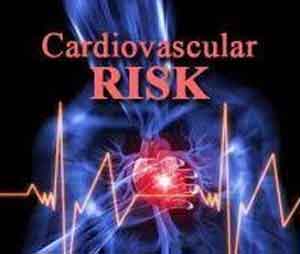- Home
- Editorial
- News
- Practice Guidelines
- Anesthesiology Guidelines
- Cancer Guidelines
- Cardiac Sciences Guidelines
- Critical Care Guidelines
- Dentistry Guidelines
- Dermatology Guidelines
- Diabetes and Endo Guidelines
- Diagnostics Guidelines
- ENT Guidelines
- Featured Practice Guidelines
- Gastroenterology Guidelines
- Geriatrics Guidelines
- Medicine Guidelines
- Nephrology Guidelines
- Neurosciences Guidelines
- Obs and Gynae Guidelines
- Ophthalmology Guidelines
- Orthopaedics Guidelines
- Paediatrics Guidelines
- Psychiatry Guidelines
- Pulmonology Guidelines
- Radiology Guidelines
- Surgery Guidelines
- Urology Guidelines
NSAIDs increase cardiovascular disease risk in patients with osteoarthritis

Non-steroidal anti-inflammatory drugs (NSAIDs) are mainstay of treatment of Osteoarthritis . most common type of arthritis that leads to stiff and painful joints in elderly particularly in the morning.Professor Aslam Anis, School of Population and Public Health, University of British Columbia and colleagues conducted a study and found that Non-steroidal anti-inflammatory drugs (NSAIDs) in patients of osteoarthritis have over two thirds of increased cardiovascular risk.The study was presented at the Annual European Congress of Rheumatology (EULAR 2018) .
The population-based cohort study used data from 7,743 osteoarthritis patients and 23,229 non-osteoarthritis controls matched for age and gender from health administrative data from British Columbia, Canada. Results of the study demonstrate that people with osteoarthritis had a 23 percent higher risk of developing CVD. The increased risk of congestive heart failure (CHF), ischemic heart disease (IHD), and stroke was 42 percent, 17 percent and 14 percent respectively. Investigators then calculated the impact of NSAID use on the increased risk and found that 68 percent of the total effect of osteoarthritis on CVD risk was due to NSAID use. The proportion of the increased risk due to NSAIDs seen in CHF was calculated at 45 percent and more than 90 percent for IHD and stroke respectively.
"The examination of cardiovascular risk among individuals with osteoarthritis is an important area of research as very little is known about the association, despite osteoarthritis being the most common rheumatic disease with high prevalence among the elderly," said Professor Thomas Dörner, Chairperson of the Abstract Selection Committee, EULAR. "This study is important because it provides new information about the potential causal role of NSAIDs for the observed cardiovascular complications among individuals with osteoarthritis."
Recent research suggests that osteoarthritis is an independent risk factor for cardiovascular disease (CVD) and several mechanisms have been suggested to account for this association. One of these is the frequent use of NSAIDs in the treatment of osteoarthritis as they have been shown to be a proven risk factor for CVD.
"To the best of our knowledge, this is the first longitudinal study to evaluate the mediating role of NSAID use in the relationship between osteoarthritis and CVD in a large population‐based sample," said Professor Aslam Anis, School of Population and Public Health, University of British Columbia . "Our results indicate that osteoarthritis is an independent risk factor for CVD and suggest a substantial proportion of the increased risk is due to the use of NSAIDs. This is highly relevant because NSAIDs are some of the most commonly used drugs to manage pain in patients with osteoarthritis."
Considering rampant use of NSAIDs in Osteoarthritis there is an urgent need to put a check on its use in the light of findings of study,experts feel.

Disclaimer: This site is primarily intended for healthcare professionals. Any content/information on this website does not replace the advice of medical and/or health professionals and should not be construed as medical/diagnostic advice/endorsement or prescription. Use of this site is subject to our terms of use, privacy policy, advertisement policy. © 2020 Minerva Medical Treatment Pvt Ltd